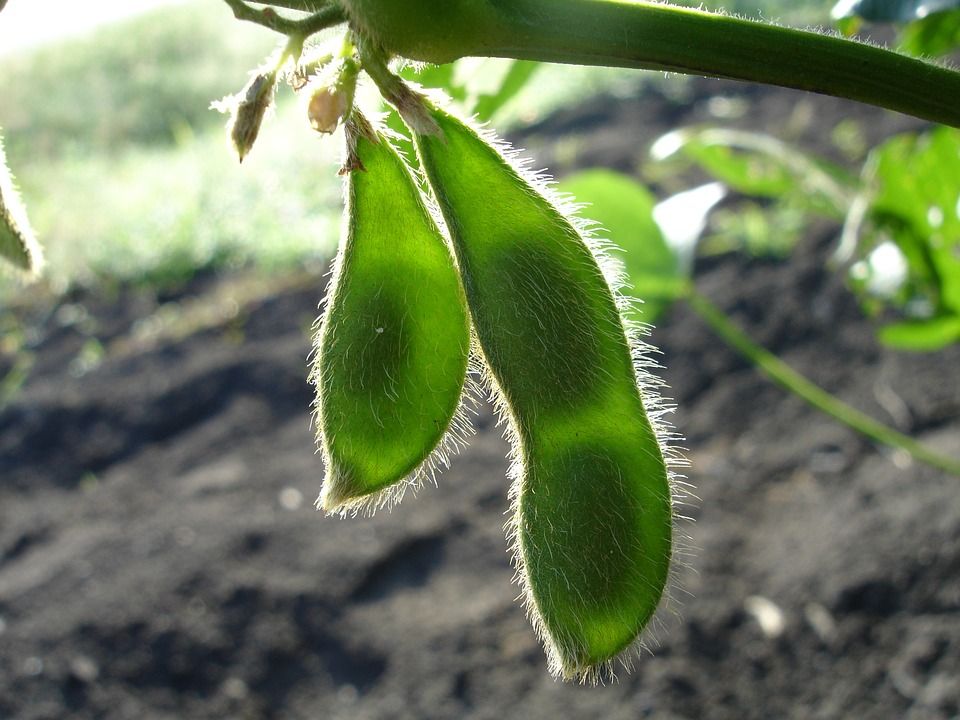ZeaKal, a biotechnology startup producing genetically-modified seeds, has raised $5.3 million from agtech VC heavyweights Finistere Ventures and Middleland Capital. A group of family offices also joined the Series B round.
With the funding, the company will continue the development of its PhotoSeed product for soybeans, and put it into broad-scale field trials in May this year. ZeaKal claims its soybean seeds will be able to yield more, in harsher conditions, than other breeds and biotechnological modifications.
Its technology aims to do so by increasing the plant’s intrinsic photosynthetic capacity. This enables it to fix more carbon dioxide for better overall growth, but also to produce and store more oil within the plant. This is a breakthrough for ZeaKal, because plants usually catabolize stored energy, such as oil, for other biological purposes like root growth, thereby diminishing their oil content, according to Arama Kukutai, managing director of Finistere Ventures.
“Plants don’t make energy for our benefit, but for their own purposes,” he told AgFunderNews. “So keeping the oil fixed is a critical difference with ZeaKal’s technology. The genes and variations to stimulate increased oil production have been known for some time, but the problem with this technology historically has been that plants reuse the greater oil production for other purposes.”
With greater oil production, comes higher quality soybeans, and a higher biomass per plant, increasing the quality of the yield, but also the quantity of it per acre, he added.
“Our attraction to ZeaKal was that it’s such an elegant, simple and straightforward approach, leveraging some creative protein engineering to allow this increase in the production of oil within soy,” said Scott Horner, managing director of Middleland Capital. “When looking at this two years ago, I kept scratching my head as it’s so intuitively obvious and simple that I couldn’t believe it worked, but the data confirmed it.” Middleland first invested in ZeaKal’s April 2014 $4.3 million Series A.
Kukutai expects the yield uplift provided by these seeds will make farmers stand up and take notice, compared to other technologies out there.
“If a technology improves yield by less than 10 percent, farmers can’t be sure that it wasn’t other factors like more rain, heat, or fertilizer causing it. But when you get above 10 percent, it’s definitely due to the technology and traits,” he said.
The technology has been validated in six crop species so far as ZeaKal builds out a platform for its technology. But with this funding the company wants to prove out the efficacy and commercialization of the technology for soybeans specifically.
This proof is likely to come at the end of the 2017 growing season when Kukutai thinks it is likely the “blockbuster” technology will be acquired by one of the large seed companies. ZeaKal could decide to become a seed company in its own right too, he added.
ZeaKal was first conceived in collaboration with research funded by the New Zealand government, later migrating to the University of Missouri and then spinning out into an independent company. This is a model Finistere wants to pursue further as it results in a large amount of research being funded by government, enabling companies to develop much further before seeking private capital.
“That’s a model we’re trying to emulate more and more in our investment approach; pick up technologies that have already been developed so far within a research institution and transmit the science to a venture company,” said Kukutai.
“In our opinion, ZeaKal is at the same stage of development that we saw when we invested in Athenix, which we exited to Bayer CropScience for $400 million in 2010, if not further.”
Finistere invested in ZeaKal through its latest fund, which is targeting a final close on $150 million later this year, according to Kukutai. The fund has investment from strategic names such as Bayer CropScience and PepsiCo.
Have news or tips? Email [email protected]





